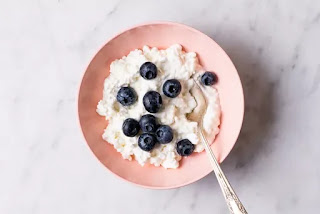Engaging in physical activity, whether you're a competitive athlete, a recreational sports enthusiast, or a yoga practitioner, undeniably brings numerous health benefits. When it comes to maximizing your workouts and enhancing athletic performance, nutrition and physical activity are closely intertwined.
The food we consume before and after exercise, as well as our regular dietary choices, significantly impact how we feel and perform during physical activities. Achieving the right balance of macronutrients and micronutrients is crucial, considering factors such as fitness level and the type of activity. It is essential to prioritize adequate nutrition to maintain overall health and optimize performance.
The Role of Nutrients in Athletic Performance
Nutritional needs for physical activity are highly individualized. Consulting with a sports dietitian is often beneficial to assess personal requirements.
Furthermore, research indicates that exercise influences food choices, with individuals who engage in regular physical activity tending to make more nutritious dietary decisions. Nutrition also plays a role in muscle recovery by reducing inflammation. A study revealed that physically active individuals with higher antioxidant intake experienced lower levels of systemic inflammation.
The Significance of Balancing Macronutrients and Timing
Consuming sufficient amounts of macronutrients—carbohydrates, protein, and fat—is crucial for fueling our bodies and optimizing exercise performance.
Carbohydrates serve as our primary energy source, providing the fuel necessary for daily activities and maximizing workouts and athletic endeavors.
Protein is essential for muscle building, as well as the repair and recovery of bones, joints, and ligaments following exercise.
Fat contributes to satiety, aids in cushioning bones and joints, and facilitates the absorption of fat-soluble vitamins A, E, D, and K.
When it comes to fueling for exercise, finding the right balance and optimal timing of macronutrients is key. Consuming carbohydrates and protein enhances physical performance and aids in post-exercise recovery.
A study examined the effects of protein and carbohydrates on skeletal muscle regeneration in athletes. After running 10 kilometers, participants consumed either a protein/carbohydrate shake, a meal consisting of white bread and sour milk cheese, or nothing at all. The study demonstrated that consuming carbohydrates and protein, whether in the form of a shake or a meal, was preferable as it reduced exercise-induced skeletal muscle damage and had anti-inflammatory effects.
Optimal Food Choices for Performance
The term "superfood" is often used by the food industry to promote specific foods as exceptionally nutrient-dense and offering maximum health benefits.
While certain foods are more nutritious than others and can positively impact health, it's important to note that no single food alone is responsible for optimal health or disease prevention.
If you're aiming to increase the nutrient density of your diet, incorporating the following nutritious foods is an excellent starting point. These foods, such as leafy greens, berries, eggs, sweet potatoes, and turmeric, contain antioxidants, complex carbohydrates, and protein, which are beneficial for athletic performance.
Dark Leafy Greens
Dark green leafy vegetables like spinach, kale, collard greens, and Swiss chard are packed with essential nutrients such as folate, zinc, calcium, magnesium, iron, vitamin C, and fiber. Including leafy greens in your diet has been shown to improve muscle function in both men and women who engage in physical activity. These vegetables also contain nitrates that convert to nitric oxide, enhancing blood flow during exercise. You can enjoy leafy greens by making kale salads, sautéing spinach with eggs for breakfast, or adding them to smoothies.
Berries
Berries are renowned for their potent antioxidant properties, making them an important addition to an athlete's diet. Exercise induces oxidative stress, leading to the production of free radicals, muscle damage, and fatigue. Incorporating antioxidants into your diet can help reduce muscle damage and inflammation, ultimately enhancing athletic performance. You can top your yogurt with blueberries, blend strawberries into smoothies, or add raspberries and blackberries to salads for a boost of antioxidants.
Eggs
Eggs, including the yolks, are rich in B vitamins, choline, iron, antioxidants, and high-quality protein, making them essential for muscle recovery and repair. The protein in eggs is highly bioavailable, meaning it is easily digested and efficiently utilized by the body. Eggs also provide fatty acids that promote heart health, along with vitamins and minerals that support cell growth and tissue repair. Incorporate eggs into your diet by enjoying them scrambled with vegetables or as convenient hardboiled snacks.
Sweet Potato
Sweet potatoes are root vegetables packed with potassium, fiber, and vitamins A and C. They serve as an excellent source of complex carbohydrates, which are essential for providing fuel to athletes. Adequate potassium intake can help reduce fatigue, prevent muscle cramps, and combat feelings of weakness. You can incorporate sweet potatoes into your meals by topping baked sweet potatoes with Greek yogurt and almond butter for a nutritious breakfast, roasting wedges as a side dish, adding them to salads, or baking them as crispy sweet potato fries to enjoy with a burger.
Turmeric
Turmeric, a vibrant yellow spice originating from India, is not only used for culinary purposes but also boasts medicinal benefits. It is renowned for its antioxidant and anti-inflammatory effects and may play a role in preventing chronic diseases such as cancer, heart disease, and diabetes. Turmeric has also gained attention in post-exercise recovery research, as evidence suggests that its consumption can reduce muscle pain, tenderness, damage, and inflammation. You can incorporate turmeric into your routine by sprinkling it on roasted vegetables, adding it to curries, or preparing golden milk. Turmeric supplements are also available.
The Importance of Hydration
Proper hydration is crucial for overall health and exercise performance. Our bodies lose water through normal bodily functions, including breathing, digestion, and sweating. Athletes need to replenish the additional water and electrolytes lost during physical exertion.
Dehydration can lead to cardiovascular strain, impaired metabolic function, and increased body temperature. Through sweat, individuals also lose essential electrolytes such as sodium, potassium, calcium, and magnesium. To avoid dehydration, it is vital to ensure you drink enough fluids before, during, and after exercise to maintain proper hydration levels.
Developing Sustainable Nutrition Habits
Whether you're training for a one-mile run, your first 5K, or a marathon, it's essential to start with small, realistic nutrition and hydration goals. Attempting to overhaul your entire diet all at once can be overwhelming and unsustainable. Small goals are more attainable and have long-term benefits.
If you feel that your hydration levels are lacking, consider investing in a fun water bottle or adding fresh fruit or liquid beverage enhancers to flavor your water. Gradually add one extra glass of water to your daily intake.
To incorporate more antioxidants into your diet, aim to include one fruit and one vegetable with each meal. Start by adding one nutrient-dense food to your weekly meal plan.
















